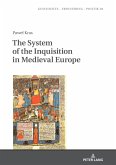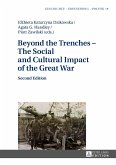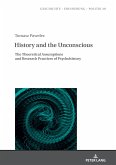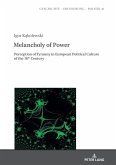The aim of this book is to explain economic dualism in the history of modern Europe. The emergence of the manorial-serf economy in the Bohemia, Poland, and Hungary in the 16th and the 17th centuries was the result of a cumulative impact of various circumstantial factors. The weakness of cities in Central Europe disturbed the social balance - so characteristic for Western-European societies - between burghers and the nobility. The political dominance of the nobility hampered the development of cities and limited the influence of burghers, paving the way to the rise of serfdom and manorial farms. These processes were accompanied by increased demand for agricultural products in Western Europe
Bitte wählen Sie Ihr Anliegen aus.
Rechnungen
Retourenschein anfordern
Bestellstatus
Storno









